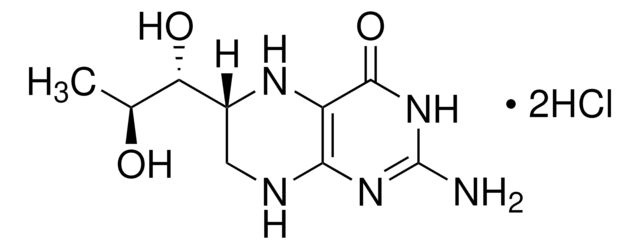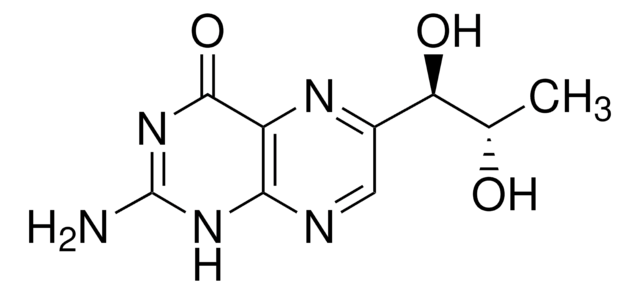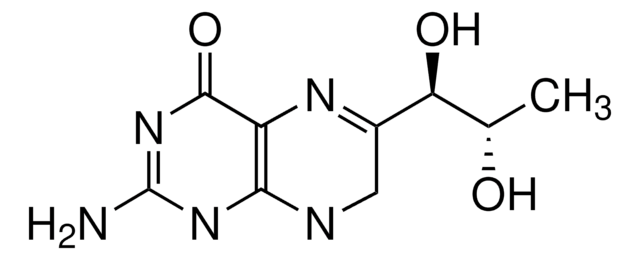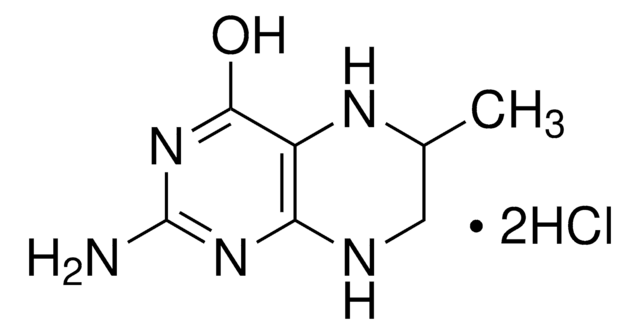D0387
6,7-Dimethyl-5,6,7,8-tetrahydropterine hydrochloride
≥95%
Synonym(s):
2-Amino-6,7-dimethyl-4-hydroxy-5,6,7,8-tetrahydropteridine, DMPH4
About This Item
Recommended Products
Quality Level
Assay
≥95%
form
powder
storage temp.
−20°C
SMILES string
Cl[H].CC1Nc2nc(N)nc(O)c2NC1C
InChI
1S/C8H13N5O.ClH/c1-3-4(2)11-6-5(10-3)7(14)13-8(9)12-6;/h3-4,10H,1-2H3,(H4,9,11,12,13,14);1H
InChI key
GIHYTRGUZVYCQX-UHFFFAOYSA-N
Biochem/physiol Actions
Signal Word
Danger
Hazard Statements
Precautionary Statements
Hazard Classifications
Eye Dam. 1 - Skin Irrit. 2 - STOT SE 3
Target Organs
Respiratory system
Storage Class Code
11 - Combustible Solids
WGK
WGK 3
Flash Point(F)
Not applicable
Flash Point(C)
Not applicable
Choose from one of the most recent versions:
Certificates of Analysis (COA)
Don't see the Right Version?
If you require a particular version, you can look up a specific certificate by the Lot or Batch number.
Already Own This Product?
Find documentation for the products that you have recently purchased in the Document Library.
Customers Also Viewed
Our team of scientists has experience in all areas of research including Life Science, Material Science, Chemical Synthesis, Chromatography, Analytical and many others.
Contact Technical Service















